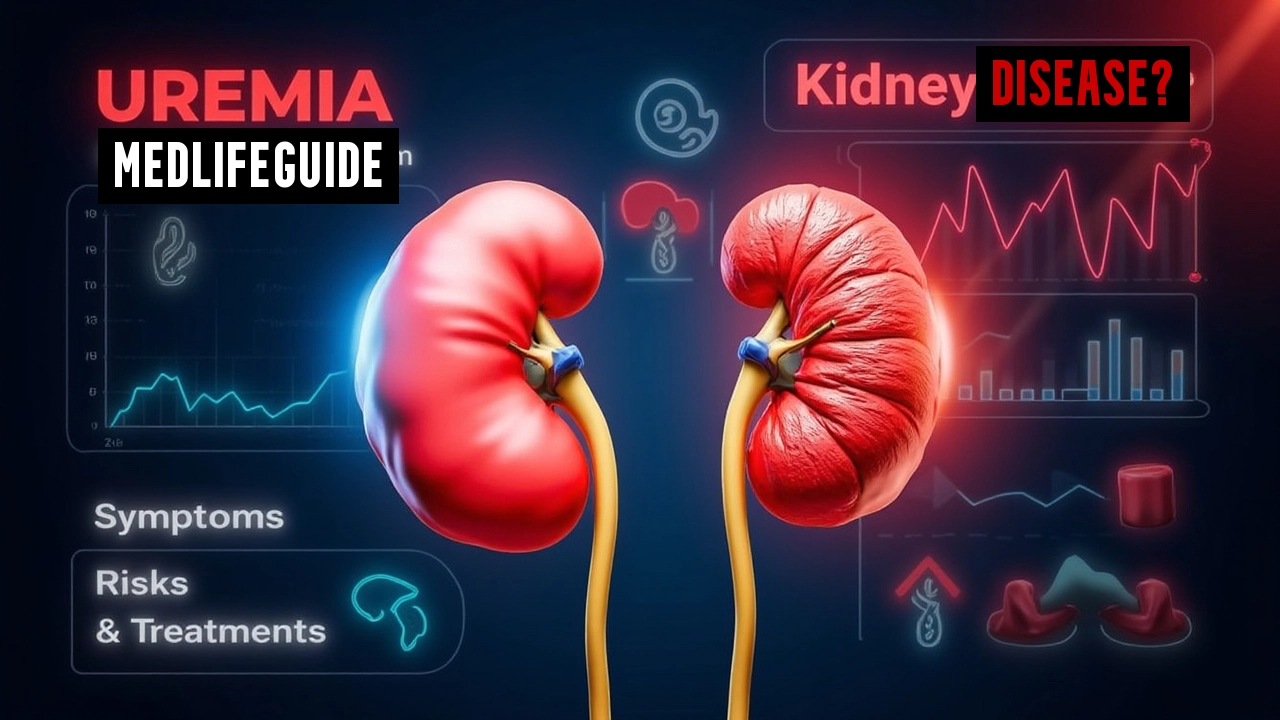Kidney disease uremia is a life-threatening clinical syndrome that occurs when the kidneys fail to filter waste products from the blood, leading to the accumulation of urine toxins in the bloodstream. This condition typically develops in advanced stages of chronic kidney disease (CKD) but can also result from acute kidney injury. Understanding kidney disease uremia involves examining kidney function, the complications of renal failure, and the best diagnostic and treatment approaches.
The Role of Kidneys and Development of Uremia
Healthy kidneys perform essential functions, including:
- Filtering metabolic waste
- Regulating acid-base balance
- Maintaining fluid and electrolyte levels
- Producing hormones like erythropoietin and active vitamin D
The glomerular filtration rate (GFR) measures kidney efficiency, while serum creatinine and creatinine clearance help assess kidney function. In kidney disease uremia, symptoms usually appear when creatinine clearance drops below 10 mL/min, indicating severe kidney impairment.
Symptoms of Kidney Disease Uremia
As kidney disease uremia progresses, patients experience:
- Gastrointestinal issues (nausea, vomiting, loss of appetite)
- Neurological effects (fatigue, confusion, seizures)
- Skin problems (persistent itching)
- Muscular complications (cramps, weakness)
- Weight loss and malnutrition
Complications of Kidney Disease Uremia
Kidney failure disrupts multiple bodily systems, leading to:
- Toxin buildup (causing pericarditis, nerve damage)
- Bleeding disorders (due to platelet dysfunction)
- Metabolic imbalances (acidosis, hyperkalemia, hyperphosphatemia)
- Bone disease (renal osteodystrophy from hypocalcemia)
- Anemia (low erythropoietin production)
- Drug toxicity (reduced medication clearance)
Diagnosing Kidney Disease Uremia
Diagnosis involves:
- Clinical evaluation (assessing symptoms like nausea, fatigue, cognitive changes)
- Lab tests (abnormal GFR, elevated creatinine, electrolyte imbalances)
- Imaging (ultrasound to check for kidney obstruction or structural damage)
Differentiating between acute kidney injury (reversible) and chronic kidney disease (progressive) is crucial for treatment planning.
Treatment of Kidney Disease Uremia
The primary treatment is renal replacement therapy, including:
- Hemodialysis (machine-based blood filtration)
- Peritoneal dialysis (using the abdominal lining for filtration)
- Kidney transplantation (definitive treatment for eligible patients)
For acute cases, treating the underlying cause (e.g., infection, dehydration) may restore kidney function.
Conclusion
Kidney disease uremia is a severe complication of renal failure, affecting multiple organ systems. Early detection and intervention through dialysis or transplantation are vital for improving survival and quality of life. Understanding its pathophysiology, symptoms, and treatment options ensures better management of this critical condition.

